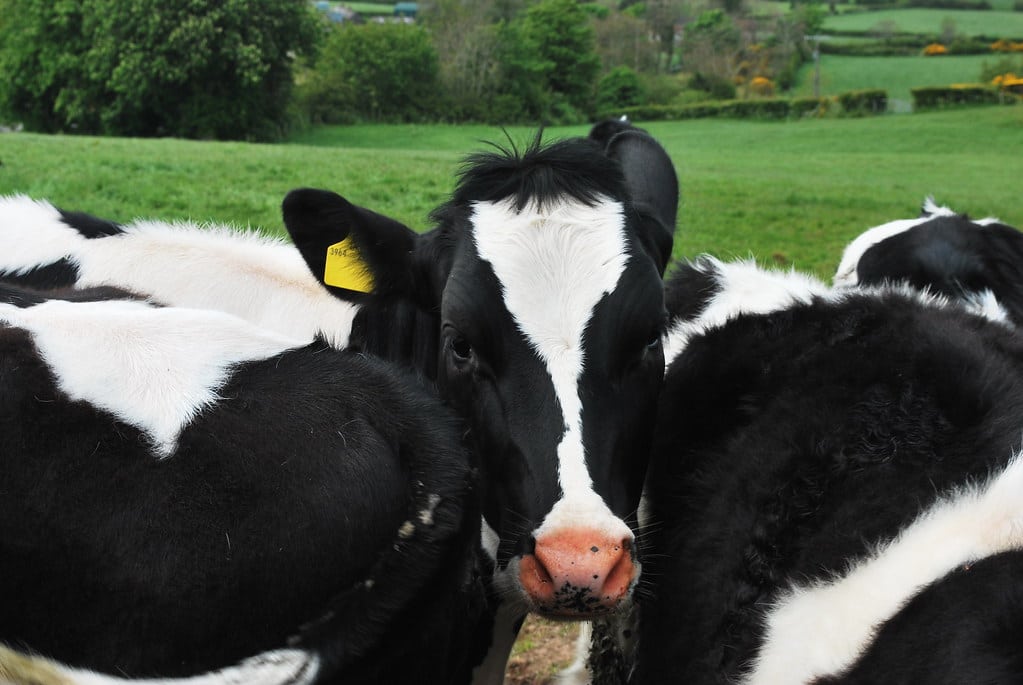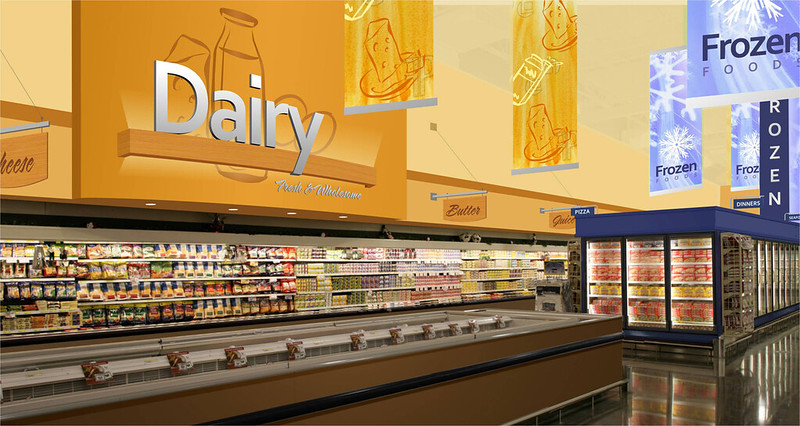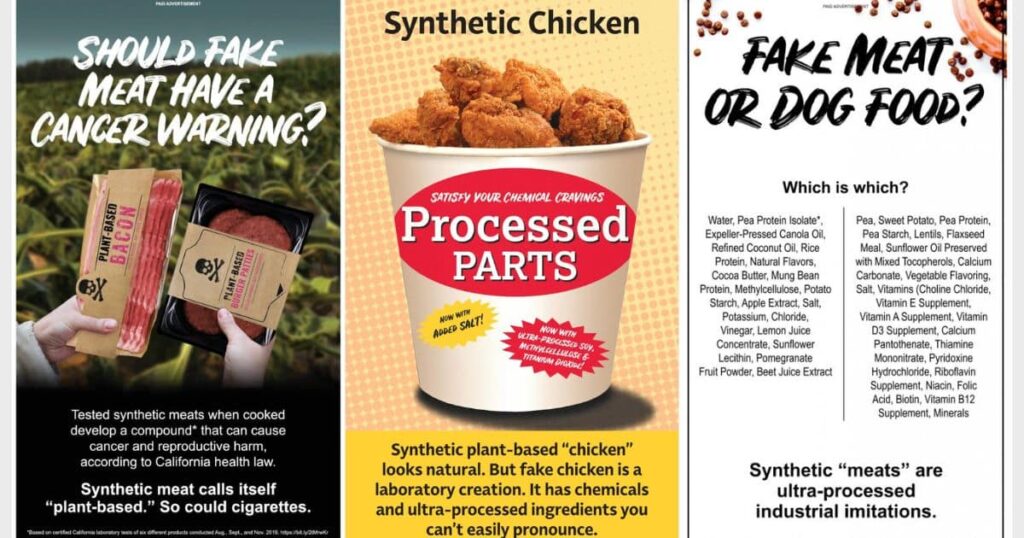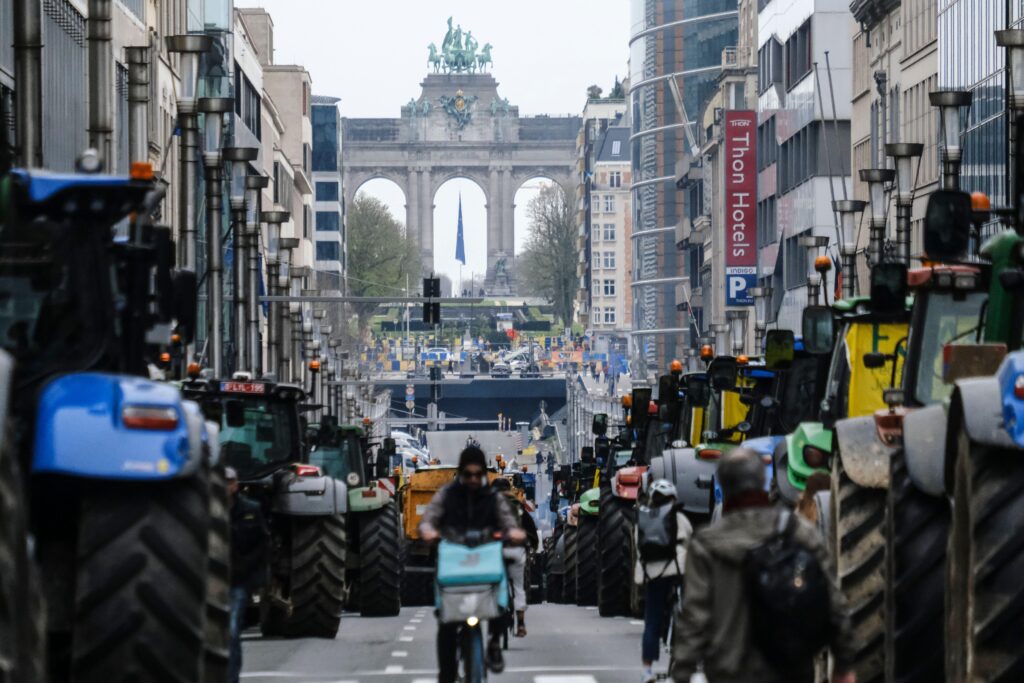A number of senior Irish politicians and agri-industry interests are trying to block a legal challenge to a new cheese factory brought by environmentalists over concerns relating to pollution and greenhouse gas emissions.
Politicians and industry figures are applying sustained public and political pressure to have the appeal dropped, despite the High Court having approved the legal challenge.
In response, a number of Irish and European NGOs are now speaking out at what they call a campaign of “intimidation of environmental defenders”.
“I see this campaign as undermining access to justice and a warning off to anyone who dares stand up and fight for the level of transformation needed in Irish agriculture,” Attracta Uí Bhroin, environmental law officer with the Irish Environmental Network told DeSmog.
“As vice president of the European Environmental Bureau I am deeply concerned when we see attacks on access to justice rights and environmental democracy, which are essential to the protection of the environment,” Uí Bhroin added. The EEB represents some 160 member organisations in more than 35 countries.
The controversy centres around an objection by An Taisce, Ireland’s national trust, to a proposal to build a major new €140 million cheese-making facility at Belview, Co. Kilkenny, by Irish-based PLC, Glanbia, in a joint venture with Royal A-ware, a Dutch dairy processor. (Disclosure: This author, a journalist, is a volunteer member of An Taisce’s climate committee).
An Taisce, which for decades has had a legally prescribed role in the Irish planning process, objected to the fact that this plant would lead to the production of an additional 450 million litres of milk to be used in cheese production, which it argued that the national planning appeals board, An Bord Pleanála (ABP), had failed to consider.
The impact of this additional milk production is an expected 2.5 percent increase in overall national ammonia pollution, an agricultural byproduct which, when released into the air, can impact human breathing. Increased milk production will also lead to increased greenhouse gas emissions from the expansion of ruminant agriculture. Environmentalists are also concerned about the impact of additional dairy output on water catchments in the south Leinster and Munster hinterland of the proposed new plant.
The High Court last November granted An Taisce leave to mount a legal challenge to the ABP decision to allow the construction of the Belview plant to proceed. An Taisce contends that building the gouda-making facility in Ireland, rather than the Netherlands, amounts to “pollution dumping” as it seeks to bypass stricter environmental regulations being imposed by Dutch authorities.
While Ireland has allowed its dairy herd to increase by around 500,000 cows in the last five to six years, in Holland, the opposite has happened in response to the EU imposing a cap on phosphate emissions (which can result from manure production). Between 2017-2018, its overall number of dairy cows fell by 190,000, or 11 per cent.
The ABP decision has since sparked a series of verbal attacks on the environmental NGO sector generally and An Taisce in particular. It is seen as highly unusual for groups of MPs to issue joint statements on a non-political issue, but in the case of Fine Gael, four MPs and former ministers issued a joint attack on what they called the “divisive” court action against “this new exciting cheese plant”.
Former justice minister and lawyer, Charlie Flanagan, and several Fine Gael colleagues claimed An Taisce was “acting against the interests of rural Ireland” and its appeal was “vexatious”. MEP Billy Kelleher called the challenge “spurious”.
Irish Farmers Association president, Tim Cullinan, described An Taisce’s proposed legal challenge as “a vindictive court action by An Taisce [that] has impacted Glanbia’s plans”.
In a brief recent statement, An Taisce said it would, out of respect for ongoing legal proceedings, “not make any further comment on the case until the matter is decided”.
Fianna Fáil TD and chair of the parliamentary agriculture committee, Jackie Cahill, described An Taisce’s legal action as an “extremely cynical move to delay the process as much as possible”.
Cahill is also a dairy farmer and a board member of Centenary Thurles Co-Op, which is a corporate member of Glanbia. His party leader, Irish prime minister Micheál Martin stated: “There is a growing sense that the judicial review is becoming a new mechanism to frustrate and delay projects hoping that they may not develop”.
On top of all this, during a recent online Dairy Forum, Glanbia Ireland CEO Jim Bergin reportedly slammed government funding of environmental NGOs, including An Taisce. According to the Farming Independent, Bergin “attacked the Greens and Minister Ryan on the €1.8m in funding that went to environmental NGOs this year.”
In context, total state support for environmental NGOs is around 0.1 percent of state and EU funding for Ireland’s agricultural sector. The EU’s CAP Basic Payment scheme pays Irish farmers some €1.2 billion a year, with additional EU and national payments, supports, and subsidies bringing the sector’s total annual subsidy support to around €2 billion.
Pádraic Fogarty, campaign officer with the Irish Wildlife Trust, denounced the latest attack on Ireland’s environmental NGO sector. He described it as “a disgraceful pile-on, with politicians, including the Taoiseach, potentially trying to interfere with the planning process”.
This process, Fogarty added, is “to serve the wider public good, it’s not there to serve sectoral interests”.
Fogarty identified a “long-term strategy by the agri-industrial sector to dismiss and de-legitimise professionals, such as ecologists and planners; this is all part of the artillery of denial”.
Ireland’s agri-industrial sector has been in an ongoing conflict in recent years with environmentalists, as it has pushed ahead with expansion plans for ruminant-based agriculture that are completely at odds with Ireland’s international climate obligations. The sector has also sought to downplay the likely impacts of climate change, and to dismiss the role of ruminant methane emissions.
From 2000 to 2010, Irish agricultural emissions had reduced steadily. However, this reversed with the decision to rapidly expand the dairy sector as milk quotas were lifted.
Overall agriculture sector emissions rose by 10.4 percent between 2010-2019, and now account for more than one third of Ireland’s total emissions, with further expansion planned this decade.
This industry-driven commodity production policy makes it all-but-impossible for Ireland to achieve net emissions cuts of around 50 per cent by 2030, and exposes the general taxpayer to large EU fines for non-compliance. A 2017 EU study found Irish agriculture to be the least climate-efficient in the EU.
Ireland’s Environmental Protection Agency told the Department of Agriculture last year that its “green” reputation is “not supported by evidence”, adding that the intensification of its agriculture industry is also the main pressure on Ireland’s declining national water quality.
Due to the serious climate implications involved, environmental groups argue that it’s critical for legal due process to be allowed to play out.
Judicial review “is a fundamental democratic right which must be respected and enforced by all for the benefit of all. If businesses can defend their own interests, the public and non-governmental organisations should also have a say to defend the general interest,” Anne Friel, lawyer and environmental democracy lead with European NGO ClientEarth, told DeSmog.
“This is not an option but an international obligation under the Aarhus Convention that Ireland and the EU have both ratified,” said Friel. “Unfortunately, we are still fighting for this right to defend the environment.”
John Gibbons is an environmental journalist and volunteer member of An Taisce’s climate committee. He is writing in a personal capacity and not on behalf of An Taisce.
Subscribe to our newsletter
Stay up to date with DeSmog news and alerts







